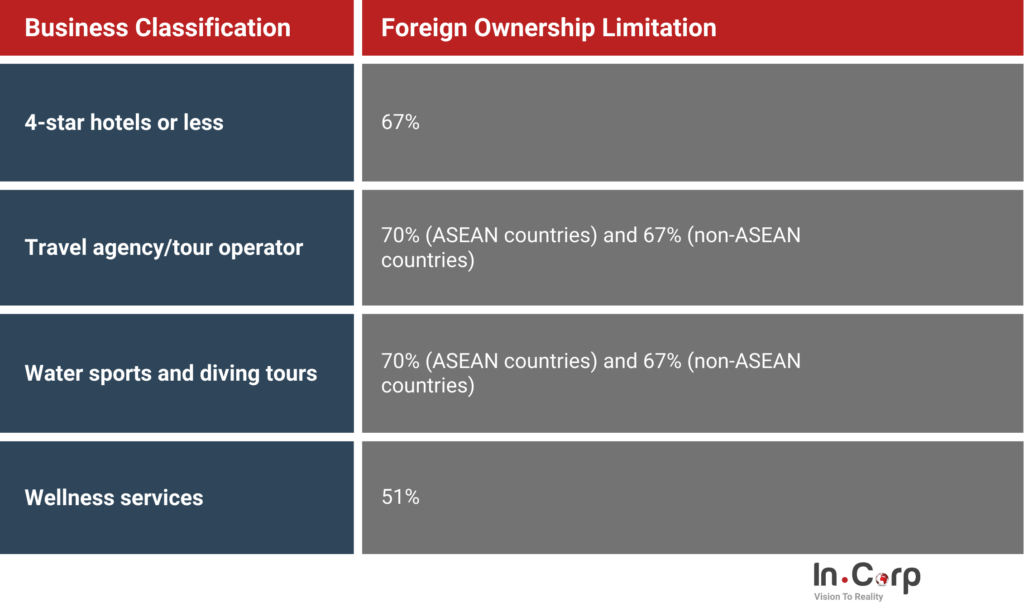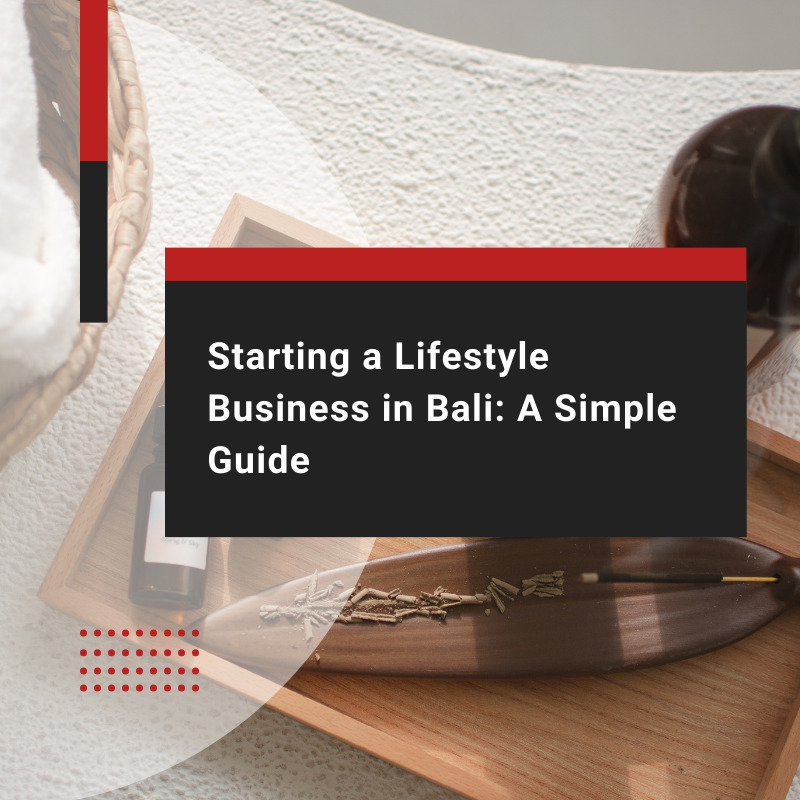For those looking to start a lifestyle business abroad, Bali should be your top choice. Bali has a vibrant culture and a growing community of digital nomads, making it an excellent destination for entrepreneurs seeking a lifestyle change.
However, before you pack your bags and set up shop, it’s crucial to understand the process and requirements of opening a lifestyle business in Bali.
What is a Lifestyle Business?
A lifestyle business prioritizes your desired lifestyle alongside financial goals. It’s typically smaller, location-independent, and caters to a specific niche. This allows for greater flexibility and control over your work schedule, enabling you to enjoy the beauty of Bali while building a successful business.
Is Bali A Good Business Place?
Starting a lifestyle business in Bali offers great potential. This is because Bali offers a booming tourist industry, a beautiful environment, and a relatively low cost of living. The government is also actively promoting investment and business growth.
Moreover, Bali has a unique blend of factors that make it attractive for lifestyle businesses:
- Thriving Tourist Industry: Bali attracts millions of visitors annually, creating a strong market for tourism-related services.
- Low Cost of Living: Compared to Western nations, Bali’s cost of living is relatively affordable, enabling you to make the most of your budget.
- Beautiful Environment: The breathtaking scenery and relaxed atmosphere contribute to a positive work-life balance.
- Growing Digital Nomad Community: Bali boasts a strong network of digital nomads, providing a supportive environment and potential clientele.
Types of Lifestyle Businesses You Can Do in Bali
While many business models can thrive in Bali, some popular choices for lifestyle businesses include:
- Short-term Rentals: Manage villas, bungalows, or guesthouses for tourists.
- Travel Agent or Tour Operator: Crafts unique experiences and tours for visitors.
- Creative Services: Offer design, photography, videography, or marketing services to local businesses or remote clients.
- Wellness and Spa: Provide yoga retreats, massages, or other holistic treatments.
- Consulting Services: Your specialized social media management or web development skills can benefit remote clients.
- Food and Beverage: Open a cafe or restaurant or offer catering services.
- Handmade Crafts and Souvenirs: Sell unique, locally-made products to tourists.
Requirements for Opening Lifestyle Business in Bali
While opening a business in Bali can be relatively straightforward, there are some essential requirements to consider:
Minimum Capital and Investment Criteria
Incorporating a foreign-owned company (PT PMA) in Indonesia involves strict requirements.
Notably, the minimum paid-up capital of IDR 2.5 billion and a mandatory investment plan of at least IDR 10 billion deter many potential investors, particularly those aiming to launch lifestyle businesses.
Investment Criteria by Business Classification (KBLI)
Each business classification (KBLI) comes with its investment threshold. PT PMAs can encompass multiple categories, each requiring a minimum investment of IDR 10 billion.
For example, establishing a restaurant (KBLI #56101) and a bar (KBLI #56301) would necessitate a combined investment of IDR 20 billion. Such criteria often need to be revised for lifestyle businesses operating on a smaller scale.
Additionally, certain business classifications, such as manufacturing and distribution, mandate separate PT PMAs due to regulatory constraints.
Limited Foreign Ownership Percentage
While some business sectors permit full foreign ownership, others impose restrictions, necessitating local partnerships. Here are examples of such classifications and their corresponding foreign ownership limits:

Challenges of Opening A Lifestyle Business in Bali
Bali has excellent potential for various activities, but challenges must also be considered.
- Competition: The tourist industry is competitive, so standing out with a unique concept is crucial.
- Language Barrier: Learning basic Bahasa Indonesia can help you navigate daily business interactions.
- Regulations: Understanding and complying with Indonesian business regulations can be complex.
Myths of Doing Business in Bali
While opening a lifestyle business in Bali can be a dream come true, you should debunk a few myths before packing your bags. Here’s a breakdown of some common misconceptions:
1. Small Operational Spending
Reality: While the cost of living might be lower than in Western countries, building a sustainable business requires fair wages and ethical practices. Paying your employees a competitive salary will attract and retain talent and contribute positively to the local community.
2. It’s Easy to Make Money Fast
Reality: Success requires hard work, planning, and a deep market understanding. Bali’s tourist industry is competitive, so you’ll need a unique concept, excellent customer service, and a well-defined marketing strategy.
3. You Can Wing It
Reality: Proper research, business planning, and legal compliance are crucial. Understanding the legalities of starting and operating a business in Indonesia, including obtaining necessary permits and visas, will save you time and frustration in the long run.
3. Foreigners Can’t Be Directors of Local Companies
Reality: Only one director in a local company needs to be an Indonesian citizen. You can be a director of your company, although there might be limitations depending on the business type and percentage of foreign ownership.
5. Local Companies Always Pay Lower Taxes
Reality: The tax system in Indonesia is complex and depends on the type of business and its revenue. At the same time, specific industries might have some tax incentives, and foreign-owned and local companies generally pay similar taxes.
How to Start a Lifestyle Business in Bali
Bali attracts aspiring entrepreneurs with its beaches, culture, and digital nomad scene. Here’s a roadmap to help you open a lifestyle business in Bali.
- Market Validation: What can you offer (products, services) that tourists or digital nomads need?
- Plan and Prepare: Research legal needs (visas, permits, company setup) and create a business plan (goals, finances, marketing).
- Secure Funding: If needed, explore savings, loans, or crowdfunding.
- Build Your Brand: Create a website and social media presence—craft marketing strategies to reach your target audience.
- Network & Integrate: Connect with other entrepreneurs, locals, and potential clients.
Guide to Doing Business in Bali & Lombok

Start A Lifestyle Business in Bali with InCorp
Opening a lifestyle business in Bali can be an advantageous experience. Understanding the requirements, potential challenges, and the best business options can increase your chances of success. InCorp Indonesia can assist with navigating legal requirements and ensuring a seamless process for establishing your business in Bali. Contact our consultant by filling out the form below.
David Susandi
Branch Manager – Bali Office at InCorp Indonesia
Holding 11 years of experience in various roles, including project manager, operational manager, and corporate strategist, David Susandi is a prominent figure for many entrepreneurial organizations expanding in Indonesia.


